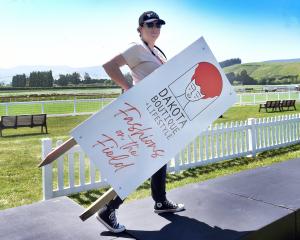Visiting extreme scientist and freediver Prof Damian Bailey says a 102m freediving world record is "fantastic'', but not every body is built for such depths.
Prof Bailey, a physiologist and biochemist at the University of South Wales, has been in Dunedin to speak at the New Zealand International Science Festival and ADInstruments.
He praised yesterday's record by New Zealand freediver William Trubridge (36), which was his 18th world record in the constant weight apnea without fins category.
The discipline was "physiologically the most demanding of all the freediving disciplines'', he said.
But Prof Bailey cautioned that freedivers such as Mr Trubridge were born, trained exceedingly hard and were great athletes.
"We can't get out there and train really hard and run as fast as Usain Bolt and it's the same with freediving.''
Prof Bailey, had been freediving for about five years.
His research interests included the impact of oxygen deprivation on the brain.
During his record freedive, Mr Trubridge held his breath for about 4min 30sec, Prof Bailey said.
"It's not just the fact he held his breath for 4.5 minutes, but to be actually exercising while doing it is very difficult.''
Prof Bailey said going down was not the big challenge, it was the ascent that was really difficult and where danger lurked.
Shallow water blackout happened when there was not enough oxygen getting to the brain stem, he said.
Freedivers called it "samba'' and it caused convulsions, motor impairment and loss of consciousness, he said.
People interested in freediving needed to know that some of the disciplines were very dangerous and should not be attempted without training and expert coaching, he said.












